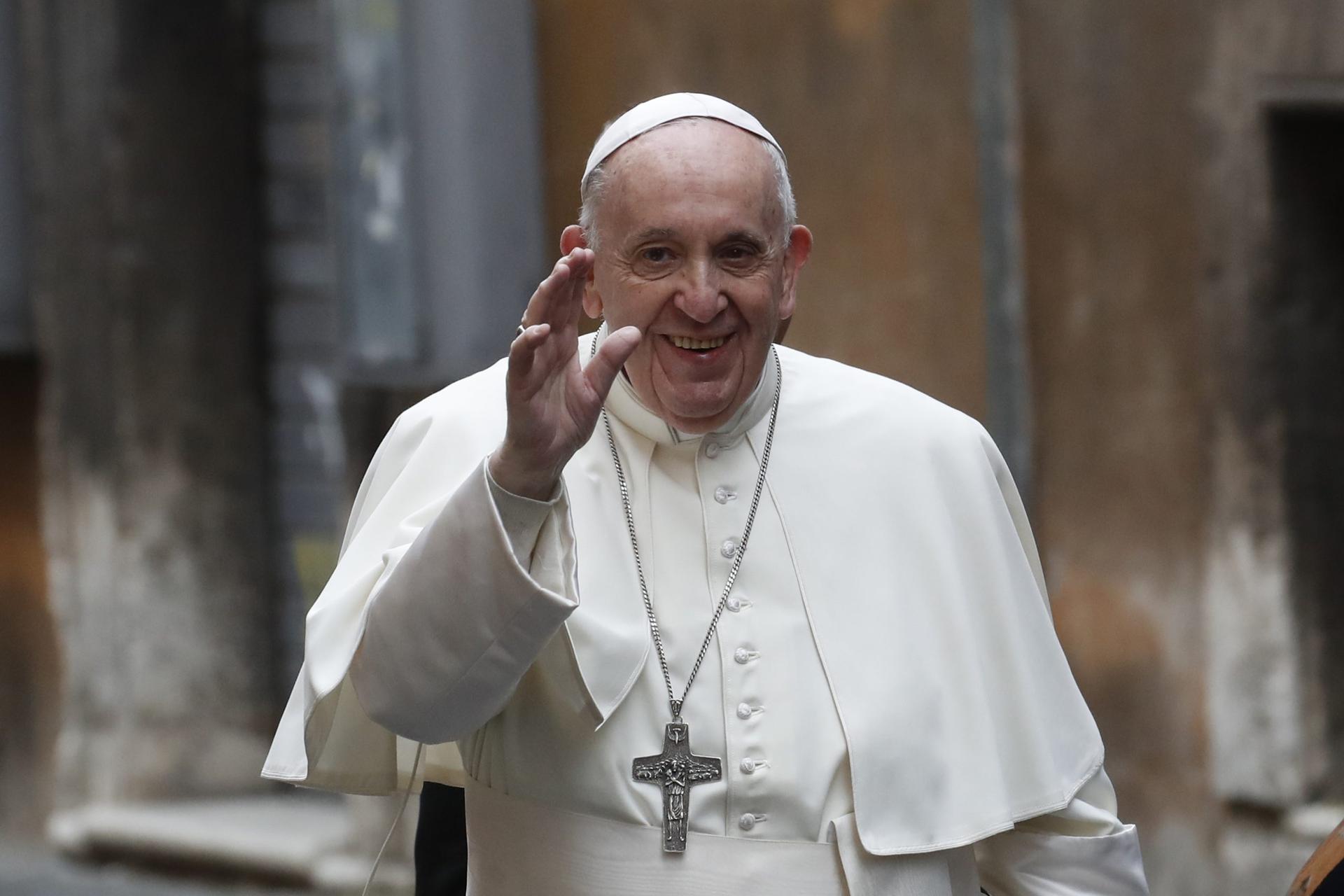ROME – Being “imprisoned” in the Vatican and unable to resume his regular schedule due to Italy’s COVID-19 lockdown does not mean Pope Francis has quieted down.
On Thursday, through pre-recorded video messages, he took part in the April 12-16 general assembly of the Brazilian bishops’ conference, closed a seminar on St. Therese of Avila in Spain, and preached about politics with the people in a conference organized by American and British institutions.
RELATED: Pope Francis proposes ‘popularism’ to counter populism
Addressing the Brazilian bishops, he said that through them, he wanted to be close to all the Brazilian people “at a time when this beloved country faces one of the toughest trials of its history,” in reference to the out-of-control COVID-19 pandemic, that has killed over 362,000 people, with over 3,000 people dying a day.
“Young and old, fathers and mothers, doctors and volunteers, holy ministers, rich and poor: The pandemic has excluded no one in its wake of suffering,” Francis said. “I am thinking in particular of the bishops who died victims of COVID.”
The pope also notes the suffering of those who have died alone, and of those who have been unable to say goodbye to loved ones, leaving “in the most deprived solitude is one of the very great pains of those who leave and those who remain.”
Despite the challenge posed by the pandemic, Francis said that the proclamation of Jesus’ victory over death in the Easter season “is an announcement that renews hope in our hearts: we cannot give up!”
The Christian faith shows that it’s possible to overcome tragedy, with hope propelling believers to get up. On the other hand, charity “urges us to cry with those who cry and to give a hand, especially to those most in need, so that they smile again,” he said.
“It is possible to overcome the pandemic, it is possible to overcome its consequences. But we will only succeed if we are united. The bishops’ conference must be one at this time, because the people who suffer are one,” the pope added.
Francis then urged the bishops to be an “instrument of reconciliation, an instrument of unity,” in a country that is heavily divided for several reasons, from politics to health, with disagreement on how to best address the pandemic between the national government of President Jair Bolsonaro and the country’s state governors. He said the only way for the bishops to be able to inspire unity, is by being united among themselves, setting internal divisions and disagreements aside.
The Vatican’s press office also released the video of the pontiff speaking to an event in the Spanish city of Avila commemorating the 50th anniversary of Pope Paul VI declaring St. Teresa of Avila the first female doctor of the Church. The April 12-15 seminar was organized by the Catholic University of St. Teresa of Avila and broadcasted online.
In his message, Francis called the 16th century saint as an “exceptional, creative and innovative woman” who discovered in her prayer “the ideal of fraternity that she wanted to make a reality in the convents she founded: ‘Here all must be friends, all must love each other, all must help each other’.”
According to the pope, the Spanish saint teaches that “the path of prayer is open to all those who humbly open themselves to the action of the Spirit in their lives, and that the sign that we are making progress is to be ever more humble, more attentive to the needs of our brothers and sisters.”
He also stresses that “the awareness of being a sinner is what opens the door to the path of holiness,” and that everyone is called to holiness, not through imitating the saints because each person’s path to God is unique, but by being stimulated and inspired by them.
Teresa, who considered herself “very wretched and miserable” according to her own writings, was able to recognize, Francis said, that God’s goodness “is greater than all the evils we can do, and He does not remember our ingratitude.”
The Argentine pontiff concluded his message by saying that much like in the times of Teresa, the world is going through times of crisis: “We live, as the Doctor of the Church said, ‘hard times’ that need faithful friends of God, ‘strong friends of God’.”
“The great temptation is to give in to disillusionment, to resignation, to the dismal and unfounded presage that everything will go wrong,” Francis said. “Such pessimism is fruitless.”
Follow Inés San Martín on Twitter: @inesanma











